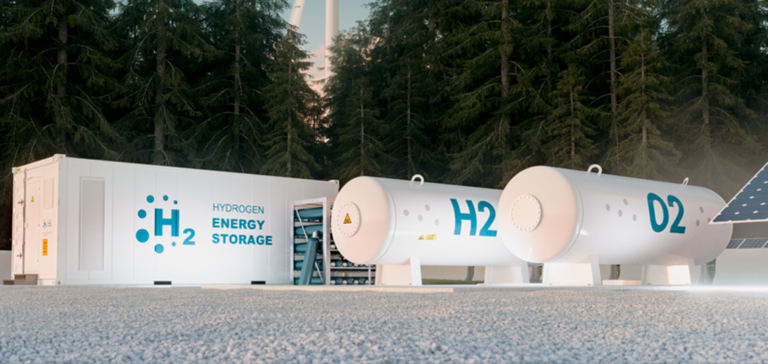Bangladesh’s Green Hydrogen Transition gains momentum. At the heart of this transition is the reduction of HSFO (high sulfur fuel oil) imports. The decision was prompted by increasing coal use and changing weather patterns.
Objectives of the Proposal
The proposal has clear objectives: to reducehydrogen delivery and refuelling costs. At the same time, it improves energy supply reliability, achieves higher fill rates and reduces energy losses. This initiative is a step towards a cleaner, more efficient economy.
The use of green hydrogen is at the heart of this transformation. It is produced using renewable energies, making it an environmentally-friendly option. Bangladesh’s commitment in this direction is a positive step towards a more sustainable energy future.
Technological advances
Zero Emission Industries (ZEI) is at the heart of this transition. They have received $5.25 million to develop a zero-evaporation liquid hydrogen refueling system. This system will supply liquid fuel to pleasure boats and other fuel cell systems.
Liquid hydrogen is preferred where high power levels or longer refuelling times are required. ZEI identified a crucial need for a portable liquid fueling system, as fixed infrastructures are often costly.
Impact on California and beyond
The impact of this initiative is not limited to Bangladesh. The California Energy Commission is also supporting similar projects. ZeroAvia Federal, for example, has received $3.25 million to develop a mobile liquid hydrogen storage and distribution system for refueling hydroelectric aircraft.
These technological advances will contribute to the decarbonization not only of aviation, but also of marine, rail, heavy goods vehicles and buses. Green hydrogen opens up exciting prospects for a cleaner, more efficient energy future.
A Circular Economy for Electric Vehicle Batteries
In a separate action, the Commission approved nearly $1.5 million for Smartville. This is to demonstrate two second-life battery energy storage systems. This initiative aims to extend the life of lithium-ion batteries used in electric vehicles.
With California’s goal of 5 million zero-emission vehicles by 2030, the number of discarded lithium-ion batteries will increase. Smartville offers a solution by reusing these batteries in stationary energy storage applications. This approach will contribute to a circular economy while strengthening the resilience of the energy grid.
Standards for Flexible Energy
Finally, the Commission adopted the first flexible demand device standards for residential pool controls. These standards are designed to encourage pool equipment to operate when electricity prices are low, thereby helping to reduce greenhouse gas emissions.
This measure will enable consumers to shift 64 GWh of electricity consumption off-peak in the first year, with an eventual annual potential of 682 GWh. This is equivalent to taking 85,000 gasoline-powered cars off the road.
In conclusion, Bangladesh and California are taking bold steps to shape a cleaner, more efficient energy future. These initiatives show that the transition to environmentally-friendly energies is possible thanks to technological innovation and a commitment to sustainability.
Final Analysis
The adoption of green hydrogen and the reuse of electric vehicle batteries are crucial steps towards a more sustainable energy future. These technological advances pave the way for a cleaner, more efficient economy. In addition, flexible-demand appliance standards will help reduce greenhouse gas emissions.
These initiatives show that solutions exist to meet environmental challenges while stimulating innovation and economic growth. Commitment to sustainability and decarbonization is essential to creating a better future for generations to come.






















